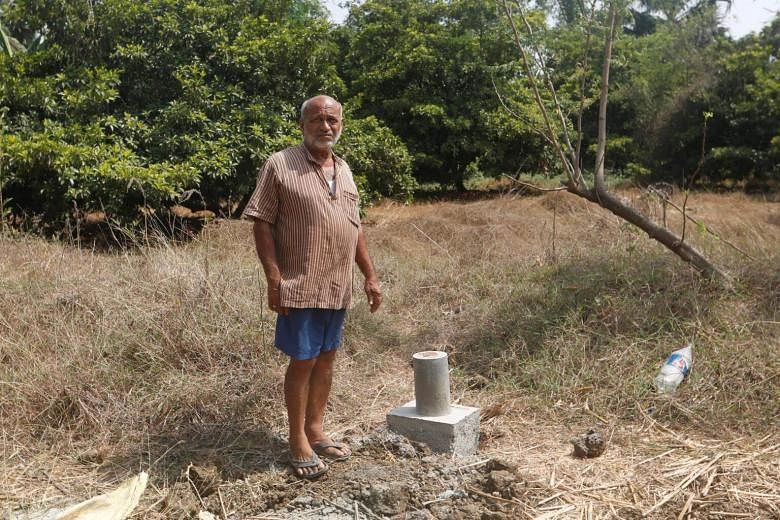NEW DELHI • India's bullet train project is moving at the pace of a commuter train.
A year after the project kicked off, only 0.9ha of land have been acquired out of the 1,400ha needed, according to the Indian government firm leading the project.
The US$15 billion (S$20.6 billion) facility, the highlight of Prime Minister Narendra Modi's drive to upgrade infrastructure, is facing resistance from farmers unhappy with the compensation for land taken away from them.
The planned 508km line linking the financial capital of Mumbai with the economic hub of Ahmedabad was meant to be a big leap from the trains of Indian Railways, Asia's oldest network with over 165 years of history.
At the current rate of land acquisition, the bullet train built with Japan's shinkansen technology risks missing its 2023 completion target.
"Land acquisition is a very common problem in India and many projects are delayed, there's no question about that," said Dr Raghbendra Jha, an economics professor at the Australian National University.
The protests highlight the challenge Mr Modi faces in implementing his flagship projects across railways, ports and airports to cement India's position as the world's fastest-growing economy.
Projects worth 754 billion rupees (S$14.1 billion) were completed in the quarter that ended last month, less than half of the targeted two trillion rupees, according to the Centre for Monitoring Indian Economy.
"The project is very high-level and highly visible, publicity wise," said Mr Nilanjan Mukhopadhyay, a political analyst and author of a biography on Mr Modi. "If people are beginning to protest, this is going to undermine Mr Modi's image as someone who can implement things very seamlessly."
For Japanese suppliers to the bullet train such as East Japan Railway, Hitachi and Kawasaki Heavy Industries, the Indian project was a big victory over China's CRRC, Siemens and Bombardier.
A group of farmers affected by the project have petitioned the Gujarat High Court, which has sought the government's stand on the plea on Nov 22, according to court documents.
The farmers have also questioned the government's power to acquire farm land for public-private partnership projects, documents show. The courts had earlier refused to put the land acquisition process on hold.
The National High Speed Rail Corporation, which is building the Indian project, said there are no funding gaps despite the delay in land acquisition. The date of operation for the project will be in August 2022, said a spokesman.
BLOOMBERG

